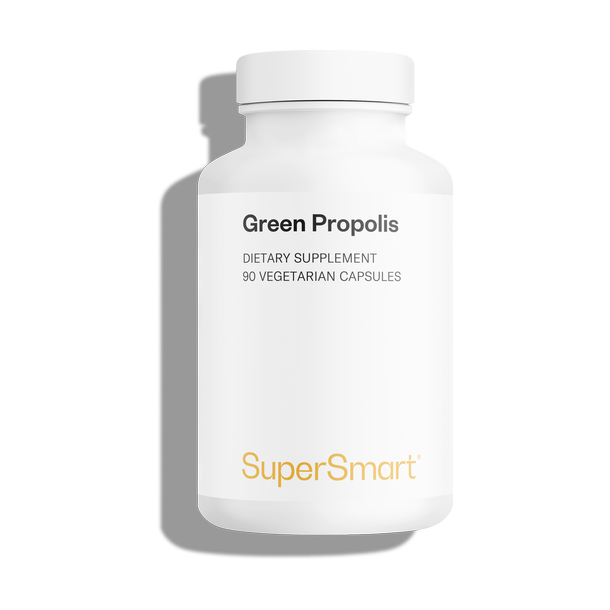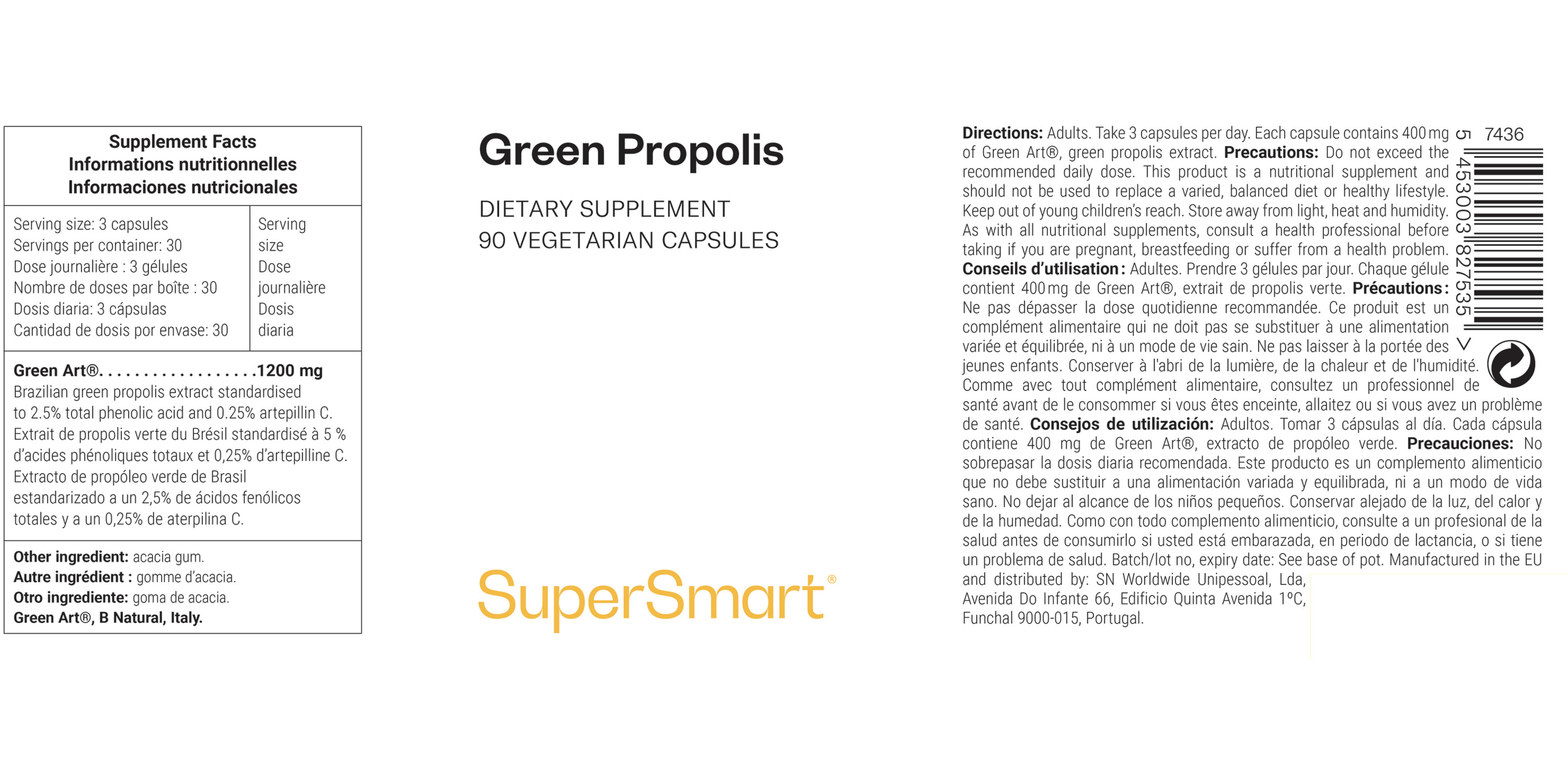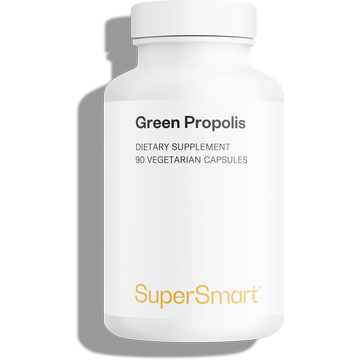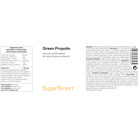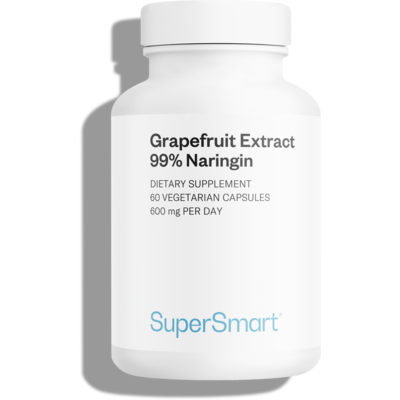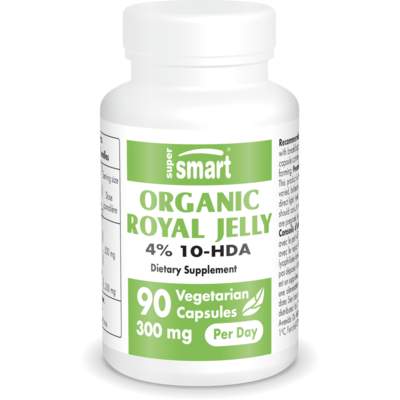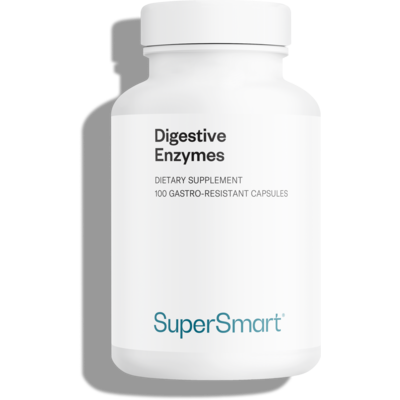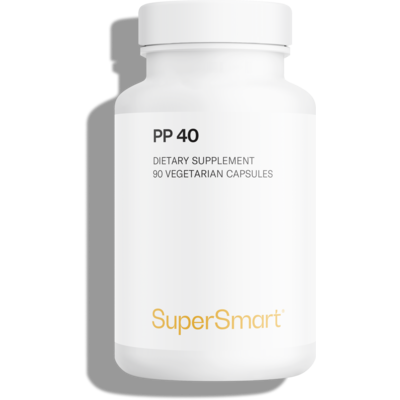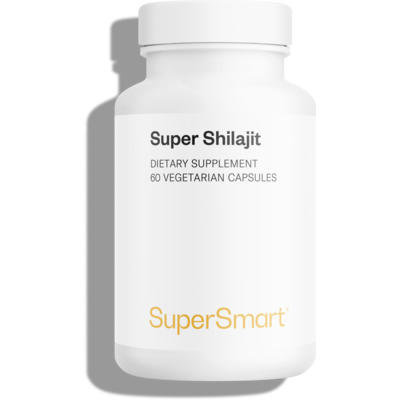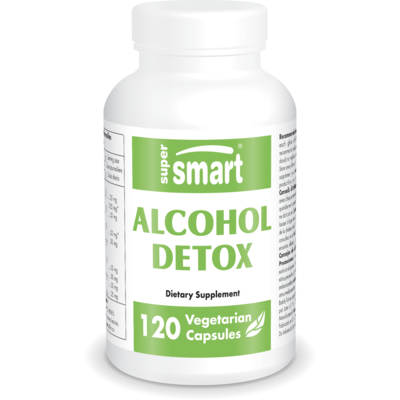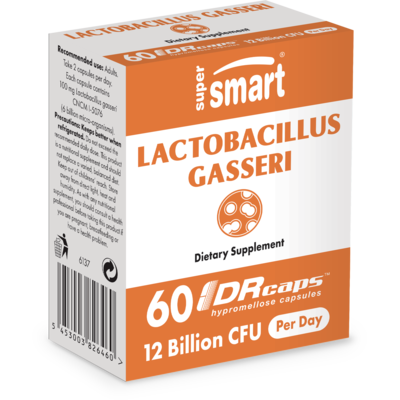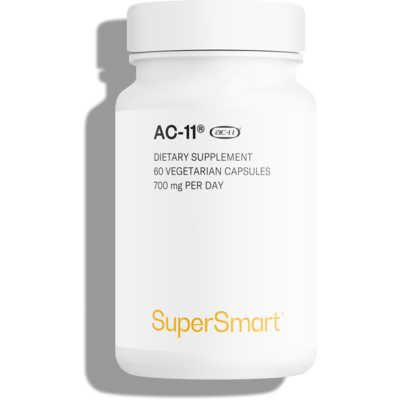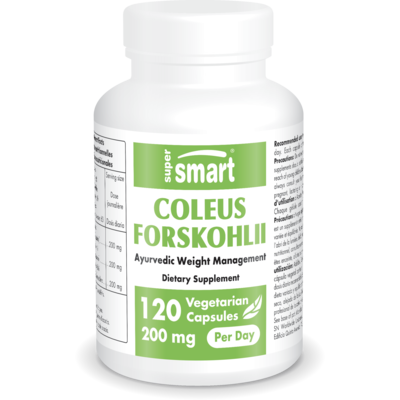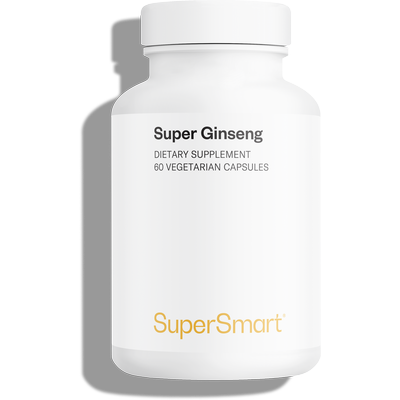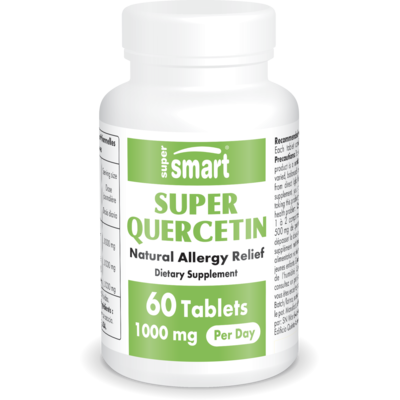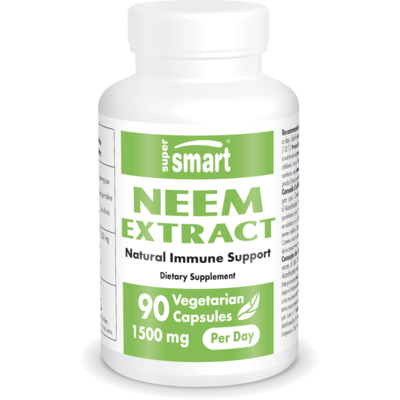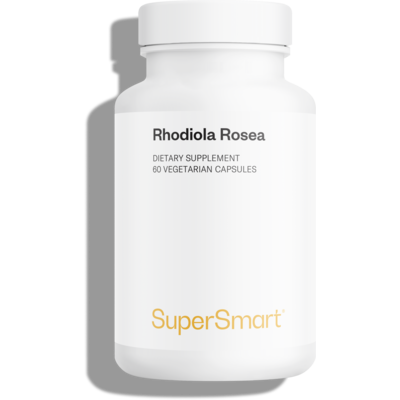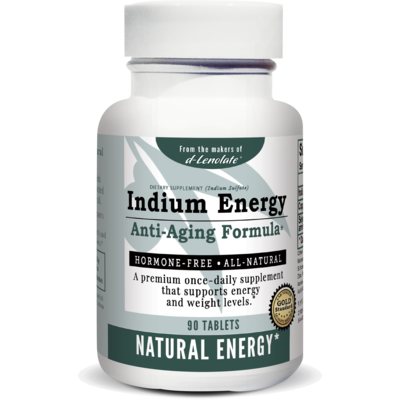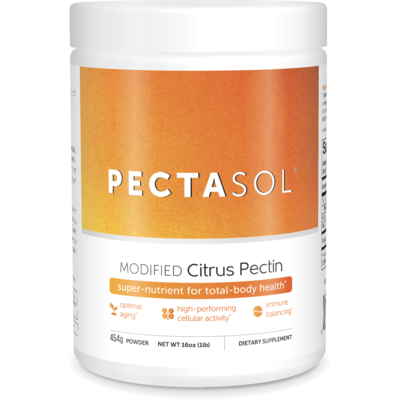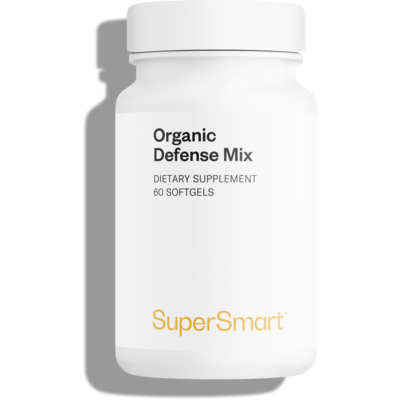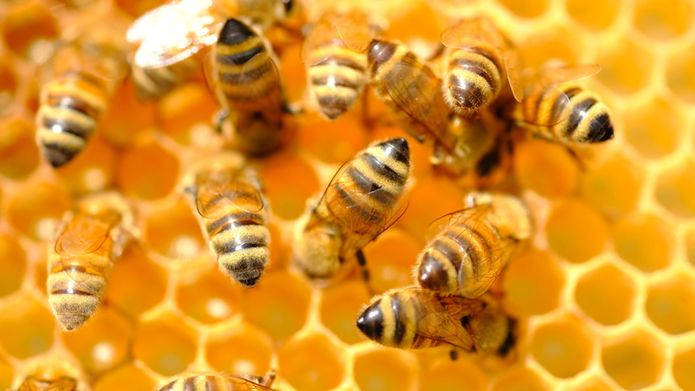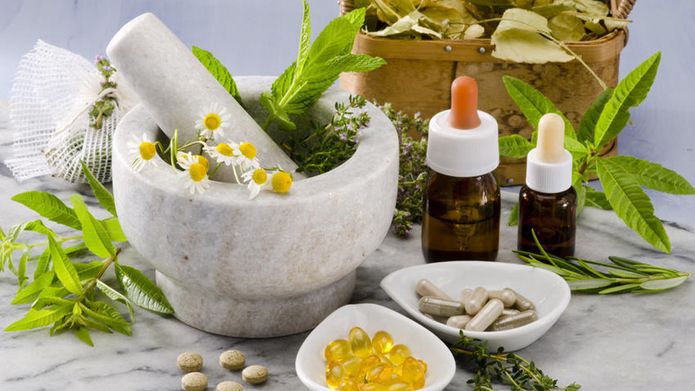Create Your Offer
Brazilian green propolis is one of Nature’s riches. In traditional herbalism, it is regarded as a valuable remedy for fighting all kinds of infections. Like honey, it boasts a highly complex composition with amazing levels of biological elements. Its effects are thought to be due to the many polyphenols and phenolic acids, such as the recently heavily studied artepillin C molecule it contains.
What is green propolis? Where does it come from?
Propolis is a sealant used by bees to make their hives stronger, more watertight, and more resistant to microbial and fungal invasion. Hence the name, bee glue. It is produced from the resin gathered from tree buds and bark. European propolis comes from poplars and conifers and Brazilian green propolis from baccharis. With powerful antiseptic properties, the resin serves to protect the tree buds from pathogens. The bees add wax and saliva to this resin and the resulting propolis is then collected by beekeepers by scratching the frames of the beehive, after which the wax and impurities are removed.
Are some forms of propolis better than others?
What is the distinction between green propolis and propolis, in general? There are various types of propolis, depending on the geographical location of the beehive, the plants native to the area, the seasonal availability of the plants, and the particular species of bee. But it is primarily the ecosystem within which the bees collect their resin that most affects the composition of the propolis.
Poplar is the main source in Europe, but it is the Brazilian varieties – particularly the growing tops of Baccharis dracunculifolia – that contain the highest level of therapeutic properties. In Brazil, the bees enjoy an exceptional environment, far from the adverse effects of intensive farming and pesticides.
Brazilian green propolis owes its color to the fact that the bees primarily collect chlorophyll from the unexpanded buds and to the propolis’s high content in several specific constituents – e.g. cinnamic acid, kaempferol, artepillin C.
What is in Brazilian green propolis?
There are on average over 300 different components in propolis, all of which have been identified using modern methods of analysis:
- Flavonoids, which comprise flavones, flavonols, and flavanones. These play an important role in plant pigmentation and are responsible for propolis’s potent antioxidant and anti-inflammatory properties. More than 60 have been identified, including quercetin, pinostrobin, and galangin.
- Phenolic acids, including caffeic acid (which has significant antioxidant potency), cinnamic acid (an exceptional antifungal), benzoic acid, diterpene acid, and ferulic acid (an anti-inflammatory).
- Aromatic substances (including vanillin and isovanillin).
- Volatile essential oils (including anethole and eugenol).
- Vitamins A and B, and minerals (including zinc and silica).
Brazilian Green Propolis Benefits
Over the last 50 years, the traditional use of propolis has been validated by science, with studies confirming an astonishing number of therapeutic properties for the substance.
Propolis and the Immune System
Does propolis boost immune system function? The antimicrobial effects of Brazilian green propolis are clearly documented in the case of bacteria, particularly those associated with ENT, gastrointestinal, genital and oral health problems, viruses, due to its flavonoids and caffeic acid esters, fungi, due to its galangin, kaempferol, and pinocembrin content, as well as parasites.
Recent studies suggest that propolis may have an antifungal effect comparable to that of synthetic drugs used to treat superficial and exotic mycoses. It acts directly on microorganisms – inhibiting, for example, bacterial growth by blocking cell division and adhesion – but also stimulates the immune system like arabinogalactan or PP40, an extract of Pao Pereira, by promoting both an increase in macrophages through stimulation of their lytic activity and production of antibodies by plasma cells. This action is related in particular to derivatives of cinnamic acid as well as to artepillin C.
Propolis’s Anti-inflammatory Effects
Propolis also offers anti-inflammatory effects according to research. The mechanism involved is similar to that of over-the-counter pain relievers: the flavonoids and their derivatives prevent the synthesis of prostaglandins – compounds central to the inflammatory response – as well as several enzymes involved in the inflammatory metabolic pathway, including cyclooxygenase, lipoxygenase, ornithine decarboxylase. The anti-inflammatory properties of green propolis can be complemented by the effects of SuperSmart’s 5-Loxin® supplement, an extract of Boswellia serrata.
Propolis as an Antioxidant and Neuroprotective
Propolis contains a number of antioxidant compounds that can trap free radicals, the highly aggressive reactive oxygen species that damages our health – i.e., oxidative stress – and that are key players in cellular aging. The 40 or so flavonoids found in propolis make it, along with tea, one of the richest sources of antioxidants, comparable with other antioxidants available to buy at SuperSmart, such as Antioxidant Synergy or Reduced Glutathione.
Scientists have also found that Brazilian green propolis may be effective against gastric ulceration, due to its significant anti-secretory activity.
What is green propolis used for?
Why would someone choose Brazilian green propolis as their bee glue supplement? Many benefits of propolis capsules have been studied over the years. With all the above mentioned therapeutic properties, propolis may be an effective natural aid in many situations.
Green propolis health benefits include:
- Supporting the body’s immune defenses.
- Boosting resistance to aggressors, free radicals, and germs.
- Fighting infections of all kinds, including inflammatory reactions.
- Combating ear, nose, and throat (ENT) problems.
- Enhancing the effects of commonly prescribed antibiotics and antifungals.
Why choose green propolis supplements over raw or chewable pieces?
There are multiple forms of propolis supplements, including capsules and raw, chewable pieces. However, there are several benefits of choosing green propolis in capsule form, including:
- Propolis has an acrid, bitter taste, and has an unpleasant burning sensation when it is chewed.
- The lyophilized form of propolis – the form found in propolis capsules – preserves its properties almost indefinitely, which is not the case with the standard preservation of fresh propolis. Therefore, you do not have to consume it in such a timely manner.
- All the above-mentioned therapeutic properties depend on the quality of standardization, according to the work of Professor Volpi of the University of Modena, as well as the collection method. Commercially available propolis in its raw form is not always high quality.
With rigorously checked botanical sources and standardized extracts supported by conclusive clinical trials, green propolis constitutes an essential, natural product offering multiple synergistic ingredients.
Using propolis to maintain and improve your health has never been easier than with our green propolis supplement. Concentrated and free from all impurities, this is the beehive’s secret to good health.
Brazilian Green Propolis Side Effects
Whether you are taking bee propolis for immune system support or green propolis extract to boost overall health, it is important to consider the possible side effects. While Brazilian green propolis is considered safe for healthy adults, you should always want to discuss supplementation with a qualified healthcare professional, as adverse reactions are possible with any new supplement you start taking.
For most people, bee glue benefits outweigh any potential side effects. However, you should always discuss any pre-existing health conditions you have, medications you take, and any other supplements you are taking before you start taking green propolis capsules.
If you start having an adverse reaction after taking a new supplement, you should always stop taking it. Only when the supplement has been ruled out as the cause should you begin taking it again.
There also is not enough research to determine if you can take them during pregnancy or lactation. We recommend avoiding any supplement during those times that has not been cleared by your physician.
WARNINGS
Do not exceed the recommended daily dose. This product is a nutritional supplement and should not be used as a substitute for a varied and balanced diet or a healthy lifestyle.
STORAGE
Store in a cool, dry place away from direct sunlight, heat, and humidity. Keep out of reach of children.
PREGNANCY AND MEDICAL CONDITIONS
If you are pregnant, breastfeeding, or have any medical conditions, consult your healthcare provider before using this product.
SUPPLEMENT INTERACTIONS
Consult your healthcare provider before use, especially if you are taking any medications or other supplements as there may be potential interactions.
Need Help?
Phone
+1 (786) 522-3907
From 9 am to 6 pm (EST)
You May Also Like

